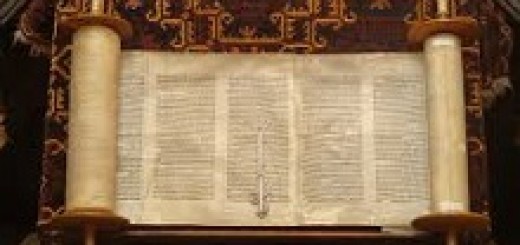By Avner Friedmann
The beginning of this Parsha tells us about the Red Cow, a very rare creature, the ashes of which were used to purify individuals from the highest form of spiritual impurity that resulted from having contact with the corpse of a Jew. It must be a “completely red cow, without blemish and upon which a yoke has never come.[1]”
During the time of the Second Temple, there lived a non-Jewish man in the town of Ashkelon, by the name of Dama the son of Nesinah. The Talmud[2] tells us that the sages visited him to buy a precious stone for the ephod, one of the eight garments worn by the High Priest. The ephod was a special apron-like garment made with two shoulder straps. Upon each strap there was a precious stone[3]. Each stone had the engravings of the names of six of the tribes of Israel on it. The price they were willing to pay Dama was 600,000 gold dinnars, which in today’s terms would amount to approximately $420,500,000, an incredible fortune!
When the sages arrived, the key to the chest containing the stone was under his sleeping father’s pillow. Dama did not want to disturb his father from his sleep and refused to retrieve the key. Thinking that this was a bargaining ploy, the sages raised the price several times, but nothing helped. He was willing to lose a vast fortune rather than wake up his father, so the sages left without the stone.
The next year, HaShem rewarded Dama for the honor he had given his father. A red cow was born to his herd. Because of its incredible rareness, the Red Cow was practically priceless. It is one of the greatest merits to have such a cow in one’s herd.
The sages went to Dama to buy the cow. He said to them, “I know that if I would ask all the money in the world, you would give it to me. However, I only ask the amount I lost as a result of honoring my father”. Dama was a righteous gentile and he wished to receive his reward in the World to Come rather than in this world [4].
From here we learn that even the non-Jewish world recognizes the importance of honoring one’s parents, even though it is not one of the seven Noachide laws that non-Jews are commanded to keep. We as Jews, on the other hand, keep this mitzvah because it is a commandment of HaShem.
The Talmud states that if the reward for doing a good deed, such as honoring one’s parents, is so great, even when it is not commanded, as was the case with Dama, how much greater is the reward for doing a mitzvah, which we, as Jews, ARE commanded to do! It is so much greater, because we do it whether we are inclined to do so or not, simply because it is HaShem’s will.
Our sages teach us that there are three partners in the creation of a human being. The Holy One, blessed is He, the father and the mother. When someone honors his parents, HaShem considers it as if He too has been honored.[5] This is also the reason why the commandment to honor one’s parents is one of the first five of the ten commandments, which are between man and G-d, rather than the last five which are between man and man. In other words, by honoring our parents, who were partners with HaShem in our creation, we are honoring Him.
Through the story of Dama, the son of Nesina, our sages demonstrated that if the reward in this world for honoring one’s parents can be so great, certainly, the reward in the World to Come, is unimaginable, as we learn in the Mishna,[6] “These are the things that the person who does them, derives their profits in this world, but their principle awaits him in the world to come; honoring one’s father and mother etc.”
[1] Bamidbar 19:2.
[2] Kiddushin 31a.
[3] See Exodus 28:6-12.
[4] Maharsha (Rabbi Shmuel Eidels, 1555-1631) on Avoda Zarah 24a.
[5] Kiddushim 30b-31a.
[6][6] Peah 1:1






















